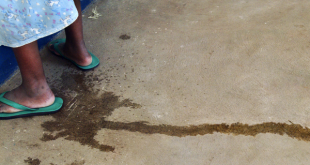
BY RICHARD DRASIMAKU
ARUA: WEDNESDAY, MARCH 08, 2023
The Uganda National Bureau of Standards (UNBS) has approved eight product lines of the Nile Natural Fruit products, allowing the Arua juice factory to use the Uganda standards certification mark (Q-mark) on its labels.
The Private Sector Foundation Uganda paid sh5m to the UNBS to facilitate the certification process for the factory’s products.
The approved products are tamarind juice with added sugar, tamarind juice with no added sugar, mango juice with added sugar, mango juice with no added sugar, lemon juice with added sugar, lemon juice with no added sugar, hibiscus juice with added sugar and hibiscus juice without added sugar.
Emmanuel Ajedra, the proprietor of the Nile Natural Fruit products said more products would be handed to the UNBS for certification when funds allow.
The earmarked products include cocktail of tamarind and hibiscus juice, tomato juice, pineapple juice, passion fruit, avocado juice, citrus and paw paws.
UNBS is the government agency mandated to superintend quality and regulatory oversight for both domestically produced and imported products.
The quality assurance all-clear for Nile Natural Fruit products was granted at the end of February 2023 following a rigorous process of random sample tests and unannounced visits to the factory to ascertain hygienic practices and qualification and health of employees among other measures.
The new development comes as a sweetener to the value addition facility as it positions to play a crucial role in propelling the parish development model (PDM) in the West Nile sub-region.
PDM is the government’s nascent development vehicle for the National Development Plan III as efforts to transform the country to upper middle income status by 2040 gather pace.

Operated by a model farmer and seasoned agricultural trainer of trainees, the Arua juice factory stands out as a peerless hallmark of West Nile’s transformation, providing fulcrum for backend and forward linkages for farmers.
“Farmers learn better from fellow farmers,” said Ajedra whose background includes grafting and nursery bed handling, apiary, poultry, rabbit raring and mushroom farming.
“They would be my suppliers for raw materials but they also need knowledge for commercial farming and handling of fruits during and after harvest,” added the entrepreneur.
A farmers’ outreach program hankered on two coordinators per sub county has been used for rolling out the mobilization and farmers’ education, attracting distant farmers including from Apac, Lira and Kitgum.
However the bulk of farmers who visit the factory are from within West Nile and the others are refugees and advanced level science students according to records in his visitors’ book.
He charges sh300,000 per group of 30 farmers while schools are charged sh200,000 for the study visits.
The Nile Natural Fruit Products was conceived in 2009 and formally registered with the Uganda Registration Services Bureau as a limited liability company by Ajedra and family in 2012.

This was after spotting untapped opportunities of mangoes, citrus, sour soup and tamarind in the region.
Since then, the government has supported the construction and acquisition of processing equipment with sh1.2b grant through the Uganda Industrial Research Institute.
The facility slipped into redundancy shortly after its commissioning by President Yoweri Museveni on December 19, 2013 due to lack of development capital and non-availability of vital components.
Ajedra listed these bottlenecks as lack of a food grade molding machine for manufacturing bottles, inadequate packaging unit, an external perimeter fence, and freezers for the cold unit, computers, electronic autoclave and refrigerators for reagents in the food laboratory and means of transport for raw materials and finished products.
He however said the company has not looked back since commencement of limited production with capacity building intervention by the German Development Agency, GIZ a year ago.
The Germans have also carried out an energy audit aimed at helping the factory to optimize power consumption and reduce costs as it awaits connection of the region to the national grid in order to upscale processing to its maximum capacity of 50 tones of fruits per week.



